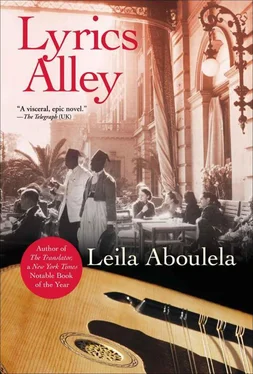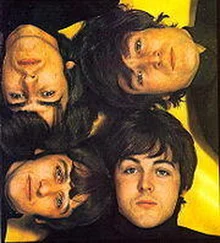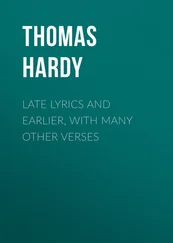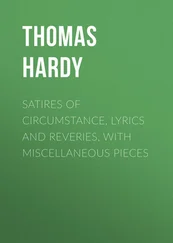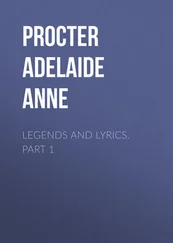Leila Aboulela - Lyrics Alley
Здесь есть возможность читать онлайн «Leila Aboulela - Lyrics Alley» весь текст электронной книги совершенно бесплатно (целиком полную версию без сокращений). В некоторых случаях можно слушать аудио, скачать через торрент в формате fb2 и присутствует краткое содержание. Год выпуска: 2011, Издательство: Grove Press, Жанр: Современная проза, на английском языке. Описание произведения, (предисловие) а так же отзывы посетителей доступны на портале библиотеки ЛибКат.
- Название:Lyrics Alley
- Автор:
- Издательство:Grove Press
- Жанр:
- Год:2011
- ISBN:нет данных
- Рейтинг книги:5 / 5. Голосов: 1
-
Избранное:Добавить в избранное
- Отзывы:
-
Ваша оценка:
- 100
- 1
- 2
- 3
- 4
- 5
Lyrics Alley: краткое содержание, описание и аннотация
Предлагаем к чтению аннотацию, описание, краткое содержание или предисловие (зависит от того, что написал сам автор книги «Lyrics Alley»). Если вы не нашли необходимую информацию о книге — напишите в комментариях, мы постараемся отыскать её.
Lyrics Alley — читать онлайн бесплатно полную книгу (весь текст) целиком
Ниже представлен текст книги, разбитый по страницам. Система сохранения места последней прочитанной страницы, позволяет с удобством читать онлайн бесплатно книгу «Lyrics Alley», без необходимости каждый раз заново искать на чём Вы остановились. Поставьте закладку, и сможете в любой момент перейти на страницу, на которой закончили чтение.
Интервал:
Закладка:
*
Radio Umdurman is coming to interview him. They will use his room because the hoash is too noisy. All day Nur’s voice is raised in instructions and requests. The electrician must be called in to tame the creaky overhead fan and fix a faulty wall socket. The room must be tidy, the floors must be cleaned and refreshments must be provided for the interviewer Mr Mu’awia and his crew. Nur had often heard Mr Mu’awia’s deep, clear voice on the radio interviewing other poets; now, remembering those clipped tones and direct questions, makes him slightly nervous. Everyone else in the family is on edge; this is a nationwide exposure, which hovers around a sensitive issue. Nur asks to be dressed formally in a long-sleeved shirt and trousers. All his old clothes hang off him in a ridiculous manner which is why this is a brand new outfit, in a significantly smaller size.
It takes an hour to dress him, to manoeuvre the sleeves up the rigid, acute angle of his elbows but he is used to all this now. The white collar of the shirt glows against his skin; his shaved chin tingles with eau de cologne. Nassir snaps a photograph, proud of his new camera. He captures the pure light in Nur’s eyes and that graceful smile.
Mr Mu’awia has a smooth look about him, though he is overweight and slightly bald. He had not been informed of the extent of Nur’s disability but he hides his embarrassment well for he is a professional broadcaster, dry and slick. It helps that Nur is sitting in an armchair, it helps that he is fully dressed today. The equipment is set up in the room: huge rolls of double-tapes, a record player, and albums of Sudanese songs. Mr Mu’awia orders the children out of the room. They file out, Ferial pulling Zeinab’s hand, Farouk dragging his sandals on the tiles. Now a voice check for Nur: he is too far from the microphone, he is too close. Zaki, who excels at being useful, is today in a buzz of excitement. His secondary school exams loom, but intoxicated by this close proximity to the media, all concerns are banished. Fatma peeks into this room full of men; she is unable to contain her curiosity. Nassir, of course, is clumsy and in the way, babbling about everything and nothing.
‘If I could request your silence, Sir, we are about to start recording.’ Mr Mu’awia doesn’t smile. ‘I need complete silence in the room.’
He turns to Nur. ‘We will start with a recital of one of your poems.’
‘Which one?’ Nur looks straight at those eyes that give away nothing.
‘ Travel is the Cause . It’s your first composition and we can talk about how you started writing. Do you need the text?’
No, Nur can recite from memory.
‘I will introduce you first and then you can start.’ Clicks, hums, and the machine is on. Mr Mu’awia speaks and the impersonal voice of Radio Umdurman becomes a human being. ‘Nur Abuzeid is one of our most popular lyrical poets. .’
Nur turns his head to Nassir and Nassir winks. He is beaming with pride, this buffoon brother of his who would not leave his side. Nur had always known that the accident was a blow to his family, too. Their devotion, their being there around him every night and every day. Now his success will be their success, further pride in the family’s name. In you, Egypt, are the causes of my injury. And in Sudan, my burden and solace .
‘Was there a special occasion in which you composed this poem?’
So this is it, the first question. ‘I composed it in 1951, when I returned from Egypt. I had finished my studies in Victoria College and I was on the beach in Alexandria. .’ He continues to describe the accident, hearing the waves, the jam of salt water up his nose.
Mr Mu’awia is seemingly unmoved by the tragedy.
‘Did you write the poem with the intention of it becoming a song?’
‘Not at all! It was a surprise from Hamza Al-Naggar. The radio was switched on — and there it was!’
‘How did you feel about that?’
‘I found it disturbing at first, then I grew to enjoy it. It propelled me into a new direction. I began to be involved in the whole process of composing lyrics and tunes, even though I do not have a musical background. Hamza and I worked together on Days and Nights and She Reached Out to Shake My Hand . But that first time, with Travel is the Cause — that was entirely a Hamza Al-Naggar conspiracy!’ He smiles, but Mr Mu’awia is serious.
‘Is that the reason he’s been granted the rights to most of your lyrics?’
Nur is taken aback.
‘No, he certainly does not usurp my poems. He is a valued friend and a constant visitor; this is why we naturally tend to work together.’
‘Who else sings your lyrics?’
‘Sayyid Khalifa and Ilyas Hakim.’
‘Did you distribute your poems to Sayyid Khalifa?’
‘No, he came over for a visit, we chatted about various topics and I showed him my work. He liked Hope and Ya Salaam, Ya Salaam so he took them. I don’t have a specific method of getting my poems to the attention of musicians.’
‘It is noticeable that you have achieved outstanding success in the field of the popular lyrical song. What in your opinion is the status of such songs in Sudan?’
Nur relaxes into the interview. Mr Mu’awia plays Sayyid Khalifa singing Ya Salaam, Ya Salaam . Nur confesses that his poems tend towards sadness and that he often needs to restrain himself from such indulgence. There is a break in which Mr Mu’awia drinks orange juice and Zaki raises a glass of cold water to Nur’s lips. Mr Mu’awia looks away and lights a cigarette, while his crew stare openly. It is always the inability to drink and feed himself which startles others. Nothing else has the same impact.
More questions and it is time for Nur to request a song. He chooses Al-Taj’s Ya Badi’at Al-Loun . When the last notes die down, Mr Mu’awia ruffles a few papers in his hands and turns to Nur.
‘One of our listeners, Mrs Asya from Atbara wants to know to whom these lines were composed.’ He begins to read out, ‘ I want to watch the magic show in your eyes. No one else can sound like you . . These verses are, of course, from You’ve Cooled and Gone . Are they addressed to a specific person?’
Nur has the odd sensation of being caught out, of people around him holding their breaths. Nassir shifts uncomfortably in his seat. And out there, through the radio waves. . is Tuf Tuf listening? The friend who knows and must pretend not to know, the friend who can no longer sit comfortably in Nur’s salon and hear him recite his poems. Is she listening? Lying in bed in her villa in Khartoum, her newborn daughter by her side.
Anger seizes him; stupid Asya from Atbara, stupid Radio Umdurman, stupid Mr Mu’awia, stupid Nassir, who now looks doleful and wary in case Nur blurts out the wrong thing and stains the family’s honour. Some names must never be spoken out loud; some family stories must not be repeated. And Nur knows his duty, he understands the lesson. She is your kin whose reputation must remain unblemished; she is another man’s wife . He knows all this, and wisdom tells him the strange truth. That easy-going, disinterested Tuf Tuf is a better husband for Soraya than he could have ever been. Through him, she is realising her dreams of modernity, discarding her to be and cutting her hair short, moving away from Umdurman’s conventions, wearing her glasses freely and carrying her degree like a trophy, gliding through the fashionable salons and parties of the capital. Nur would have been possessive of her, he would have held her tight with passionate love, and through and through he was a poet who loved his colloquial tongue, the traditions of his people, the closeness of the Nile and the sounds of the alley. Mrs Asya from Atbara wants to meddle and know; wants to grab and know. . How different other people are from him! They live in the real world, banal and industrious, while he skids the surface of pain and flutters against sadness. Beauty is his friend; loss is his friend. His is the pleasurable company of writing poems and making songs. He has fewer inhibitions than they do; less time, less space.
Читать дальшеИнтервал:
Закладка:
Похожие книги на «Lyrics Alley»
Представляем Вашему вниманию похожие книги на «Lyrics Alley» списком для выбора. Мы отобрали схожую по названию и смыслу литературу в надежде предоставить читателям больше вариантов отыскать новые, интересные, ещё непрочитанные произведения.
Обсуждение, отзывы о книге «Lyrics Alley» и просто собственные мнения читателей. Оставьте ваши комментарии, напишите, что Вы думаете о произведении, его смысле или главных героях. Укажите что конкретно понравилось, а что нет, и почему Вы так считаете.
